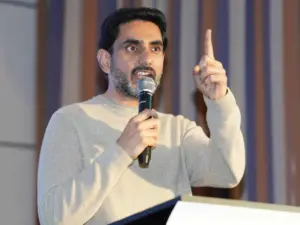
The U.S. job market has become increasingly challenging for international students, prompting parents to rethink their approach to American education.
Entrepreneur Vijay Thirumalai recently took to social media to highlight the growing obstacles students face in securing internships and jobs, particularly due to strict visa screenings.
Responding to a tweet from editor Smita Prakash, Thirumalai explained: “Many international students are struggling to secure internships in the U.S. Companies are rejecting candidates outright if they lack work authorization, even on OPT.”
He also raised concerns about companies preemptively rejecting applicants who may need work visa sponsorships in the future, despite significant investments in U.S. education.
Thirumalai warned against spending upwards of $300,000 on a U.S. undergraduate degree, especially when post-graduation employment prospects remain uncertain. Instead, he urged parents to consider alternative strategies.
For a better return on investment (ROI), he suggested countries like Canada (University of Toronto, Waterloo) and Germany, where education offers a more direct route to permanent residency.
For families set on U.S. education, Thirumalai recommended the EB-5 visa program as a solution to bypass the uncertainties of the H-1B process.
The EB-5 visa requires an additional $400,000 investment under FEMA rules, reducing the capital requirement from the standard $800,000. Students who follow this route can secure an Employment Authorization Document (EAD) within two years of their undergraduate program, enabling them to work for any employer, pursue entrepreneurial ventures, or build careers without H-1B visa constraints.
This approach reduces dependence on uncertain H-1B visa lotteries and significantly enhances job prospects post-graduation. Furthermore, it provides families with more security, enabling students to focus on building their careers in the U.S.
When compared to the risk of limited job prospects and lower ROI from a U.S. degree, the EB-5 visa offers a viable solution for those willing to make the initial investment.
Thirumalai emphasized that planning strategically and exploring alternative pathways can help families secure a brighter future for their children in an increasingly competitive global job market.
Recent Random Post:
















